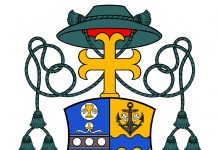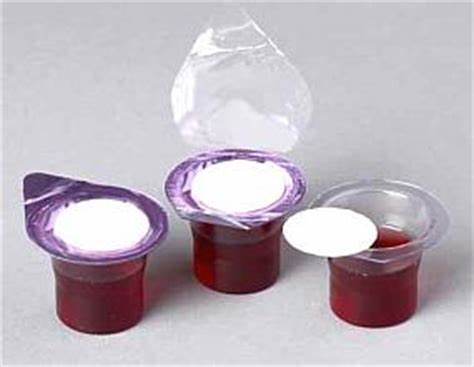By Bishop Mark Bartchak
It seems pretty clever to think that individually packaged servings of bread and wine would be perfect during the current pandemic. Self-serve communion! No need for priests, deacons, or extraordinary ministers!
This product should not even be considered and no dispensation or permission would be given.
50. The communicant, including the extraordinary minister, is never allowed to self-communicate, even by means of intinction. Communion under either form, bread or wine, must always be given by an ordinary or extraordinary minister of Holy Communion. (Norms for the Distribution and Reception of Holy Communion under Both Kinds in the Dioceses of the United States of America found at the USCCB website https://www.usccb.org/prayer-and-worship/the-mass/norms-for-holy-communion-under-both-kinds.)
You may be wondering why this is prohibited. Here is a brief explanation.
These individually prepared packages do not reflect the significance of the “one bread” and “one cup” that is integral to the meaning of the Holy Eucharist (cf. 1 Cor 10:16-17). At the time for Communion during the Mass, the priest invites the people to receive and he gives to them from the Lord’s table, just as Christ did at the Last Supper (cf. Mt 26:26; Mk 14:22; Lk 22:19).
And we are reminded in the General Instruction of the Roman Missal (n. 85) that receiving Holy Communion stands out as participation in the sacrifice actually celebrated at the altar. It’s about what Jesus gave: his Body and Blood; his whole life for our salvation. And it’s about what He continues to give in the the Holy Eucharist. The reception of the Holy Eucharist is never “self-serve” as this clever packaging suggests. It is the Lord’s desire that we be waited on; that we be served at his table.
Editor’s Note: This is part of a on-going series by Bishop Mark and other faith leaders addressing matters of Church teaching.































